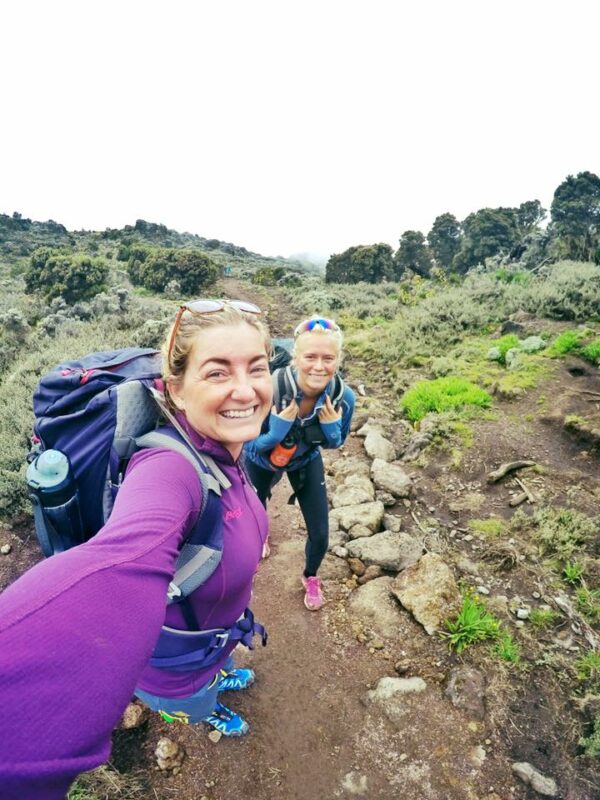
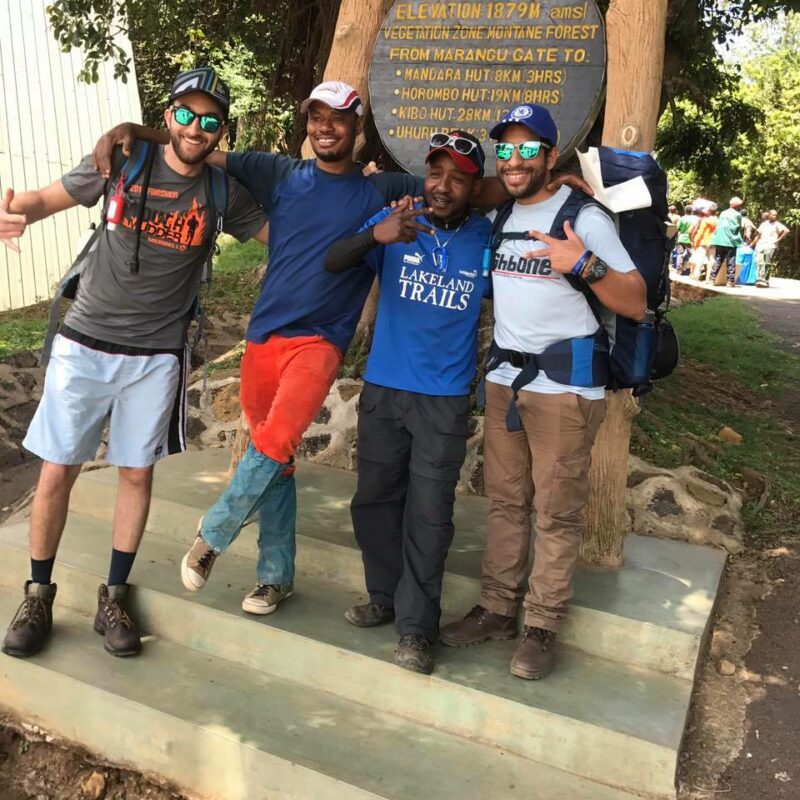
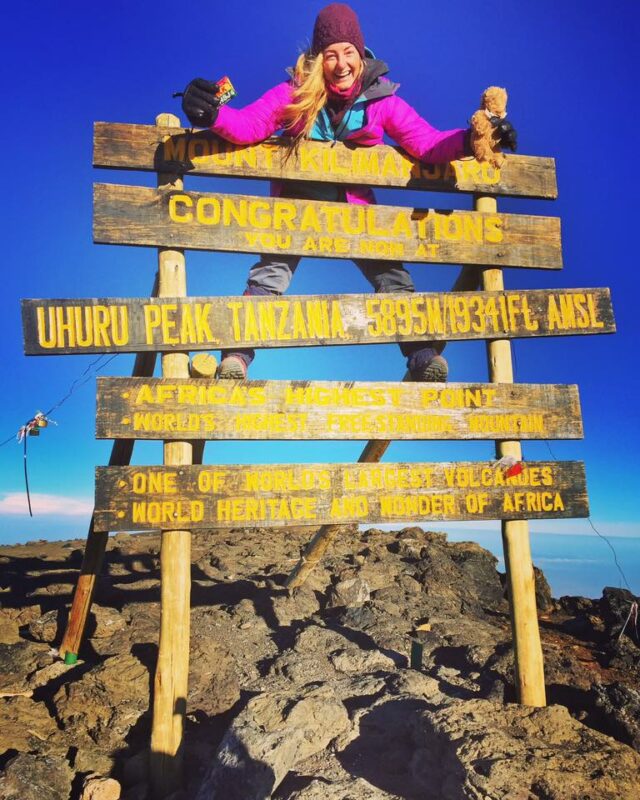
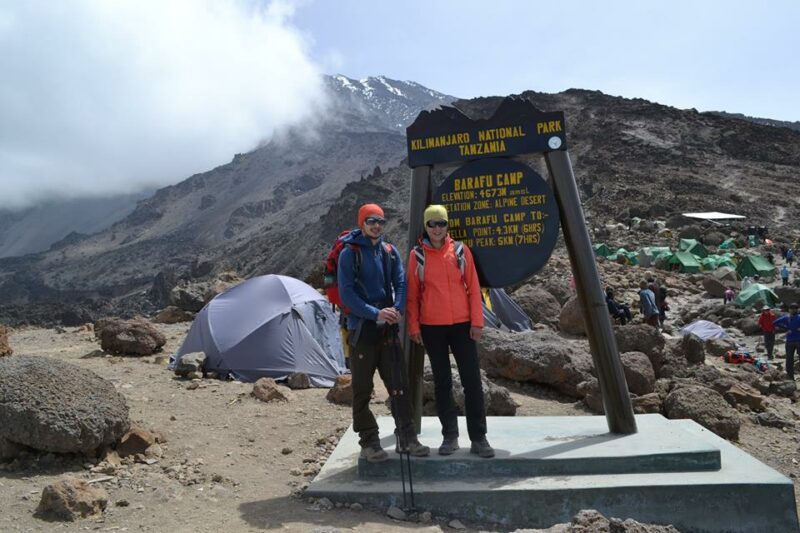

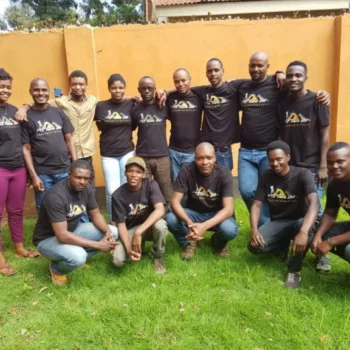
Discover Kilimanjaro's Less Trodden Trails on the Lemosho Route: Ready for the ultimate trekking challenge? Join our 7-day journey up Mount Kilimanjaro via the scenic Lemosho Route.
Starting with a panoramic drive to Kilimanjaro National Park, you'll trek past the Mti Mkubwa Camp, through moorlands to Shira and Barranco Camps, and tackle the famed Barranco Wall.
Prepare for a night-time ascent of Uhuru Peak, and experience unforgettable sunrise views from Africa's highest point.
This journey is a perfect blend of adventure, breathtaking scenery, and personal achievement.
-
Day 1 - Arrival and Transfer to Moshi
- Meet at the airport and transfer to Moshi hotel.
- Evening trek briefing and gear check.
Day 2 - Drive to Kilimanjaro National Park, Hike to Mti Mkubwa Camp
- Drive to Londorossi Gate, register for the trek.
- First hike through forest trails to Mti Mkubwa Camp.
Day 3 - Mti Mkubwa Camp to Shira 2 Camp
- Hike through moorlands, over Shira Ridge to Shira 2 Camp.
- Cross several streams, enjoy moorland views.
Day 4 - Shira 2 Camp to Barranco Camp via Lava Tower
- Ascend to Lava Tower, then descend to Barranco Camp.
- Acclimatization day with stunning views.
Day 5 - Barranco Camp to Karanga Camp
- Climb Barranco Wall, hike to Karanga Camp.
- Acclimatization trek towards Barafu Camp.
Day 6 - Karanga Camp to Barafu Camp
- Hike to Barafu Summit Camp, prepare for summit night.
- Acclimatization hike to Kosovo Summit Camp.
Day 7 - Summit Attempt and Descent to Mweka Camp
- Night ascent to Uhuru Peak, then descent to Mweka Camp.
- Celebrate summit success and enjoy final mountain night.
Day 8 - Mweka Camp to Mweka Gate, Return to Moshi
- Descend to Mweka Gate, collect summit certificates.
- Return to Moshi hotel for rest and celebration.
Day 9 - Departure
- Drive back to the airport for homeward flights.
Day 1 - Arrival and transfer to Moshi
We'll be there to meet you at the airport and whisk you off to your hotel in Moshi, the gateway to the Kilimanjaro National Park. In the evening you'll meet your fellow adventurers for a briefing from your guide about Kilimanjaro and your trek. This is a great opportunity to check you've got the kit you need - kit is available to rent if needed.
Day 2 - Drive to Kilimanjaro National Park and hike to Mti Mkubwa Camp
We'll collect you from your hotel and drive roughly 3–4 hours to Kilimanjaro National Park's western entrance: Londorossi Gate (2,200 m).
After acquiring our climbing permits and registering with search and rescue, we'll continue onwards towards our drop-off point using off-road vehicles (reaching 3,500 meters). We'll experience our first stunning views of the Shira Plateau!
We'll walk along forest trails to reach our first campsite of the trek - Mti Mkubwa (Big Tree). By the time we reach the camp, our professional mountain crew will have the tents up and a hearty camp meal ready.
Day 3 - Mti Mkubwe Camp to Shira 2 Camp
After a hearty camp breakfast, we're on the road again as the trail gradually steepens and we reach giant heather moorland.
We have several stream crossings to negotiate as we make our way over the Shira Ridge, past Shira 1 camp and onto Shira 2 camp, a peaceful spot in meadows by a stream.
Day 4 - Shira 2 Camp to the Lava Tower and descent to Barranco Camp
After another hearty breakfast, we leave Shira 2 Camp (3,900 m) and make our way towards the Lava Tower, also known as 'Shark's Tooth' (4,630 m). This section is quite tough with a lot of ascents and descents up to the camp at over 4,600 meters. It might be a bit of a struggle but remember 'pole pole'.
After feasting our eyes on the stunning Lava Tower, we'll drop down to Barranco Camp (3,960 m). Here we'll get our first glimpse of the famous Barranco Wall, impressive in both its massive size and its steepness! We'll be climbing it tomorrow but fear not - there's a simple hiking trail..
Although we end today around the same altitude as we started, this day is very important to help your body acclimatise and prepare for summit day.
Day 5 - hike from Barranco Camp to Karanga Camp
A big day today! We'll get an early start to avoid the crowds, and head on up to the awesome Barranco Wall.
Hiking up the gorge wall isn't difficult and should take us around an hour. After the climb, we'll take a breather in front of the scenic Kibo volcano - selfie time!
We face a more challenging hike to Karanga Camp, with a lot of ascents and descents. Don't worry though - our guides are experts at choosing an optimal pace that suits the whole group and they're great motivators.
After reaching the camp we'll enjoy a well-deserved hot lunch. After a couple of hours rest, we'll complete an acclimatisation towards Barafu Camp with a 300m height gain, then drop back down to the camp.
Note: The acclimatisation trek is an easy hike with a slight gain in altitude designed to speed up the acclimatisation process. You should take these seriously, as they'll be key to increasing your chances of successfully summiting Kilimanjaro and help prevent you suffering from the effects of altitude sickness.
Day 6 - Karanga Camp to Barafu Camp
After breakfast we'll begin our hike to Barafu Summit Camp (4,640m), our basecamp for our nighttime ascent of Uhuru Peak (5,895m). Our team will have set up camp by the time you arrive, so you can relax.
We'll have completed the stunning South Circuit, which gives spectacular views of the summit from all directions.
After a welcome rest, we'll take an acclimatisation hike towards the Kosovo Summit Camp (4,800m) and then back to Barafu Camp in time for dinner. Eat and rest well - tomorrow's the big day and you'll need your strength!
Day 7 - ascent of Uhuru Peak and descent to Mweka Camp
The big day! We're woken in the night (hopefully we'll manage to get some sleep despite our excitement!) for our summit attempt. The climb is technically relatively straightforward; it's the altitude that makes it challenging.
Each pair of climbers will be assigned a guide to monitor physical and mental health for the duration of the climb, so you'll be in safe hands.
Just take it nice and slowly and you'll reach the high point of Uhuru Peak - what a feeling! And what a view - time to get that camera out and snap the most stunning sunrise you'll ever see!
After our successful summit attempt, we'll trek straight down to the Mweka Camp, stopping at Barafu for some much-needed lunch. You may want gaiters and trekking poles for the loose gravel going down. We'll arrive at Mweka Camp and enjoy our last evening on the mountain.
Day 8 - Mweka Camp to Mweka Gate
After a good breakfast we'll descend to the Mweka Park Gate to receive congratulations and our hard-earned summit certificates
From the gate, we'll have another hour's walk to Mweka Village, where a vehicle will be waiting to drive us back to our hotel in Moshi (about 30 minutes drive)
Day 9 - drive you back to the airport
Is this a good trip if I'm travelling solo?
What's the typical age range?
Is there a minimum age for this trip?
How long do I need to climb Kilimanjaro?
When is the best time of year to climb Kilimanjaro?
Which route should I choose for the climb?
What level of fitness is required?
How much distance will we hike each day?
Why do we start the final ascent in pre-dawn darkness?
What if I am slower than other trekkers?
What if I am unable to reach the summit?
What type of staff will accompany me during the climb?
What size will the group be?
Do I need travel insurance?
Is the guide insured?
What currency do I need to bring?
How much weight will I need to carry, and where can I store items not required during the climb?
What is provided, and what do I need to bring?
What is the accommodation like during the trek?
OTHER
Will I need a visa to visit Tanzania?
What vaccinations will I need?
Is there a discount for group bookings?
Is there a discount if I make my own way there or travel from a different starting point?

Your head guide for this trip is Emmanuel. Emmanuel has decades of experience leading tours under his belt and prides himself on delivering the best possible travel experience. He's one of the only Travel life-certified guides in Tanzania and a founding member of the Tunacare nongovernmental organisation which helps Tanzanian families in poverty. Emmanuel is passionate about social, economic and environmental sustainability.
Emmanuel allocates work to guides, cooks and porters on the basis of merit, continued performance and positive feedback from clients. Many of them are locals who have been part of his company for years.
